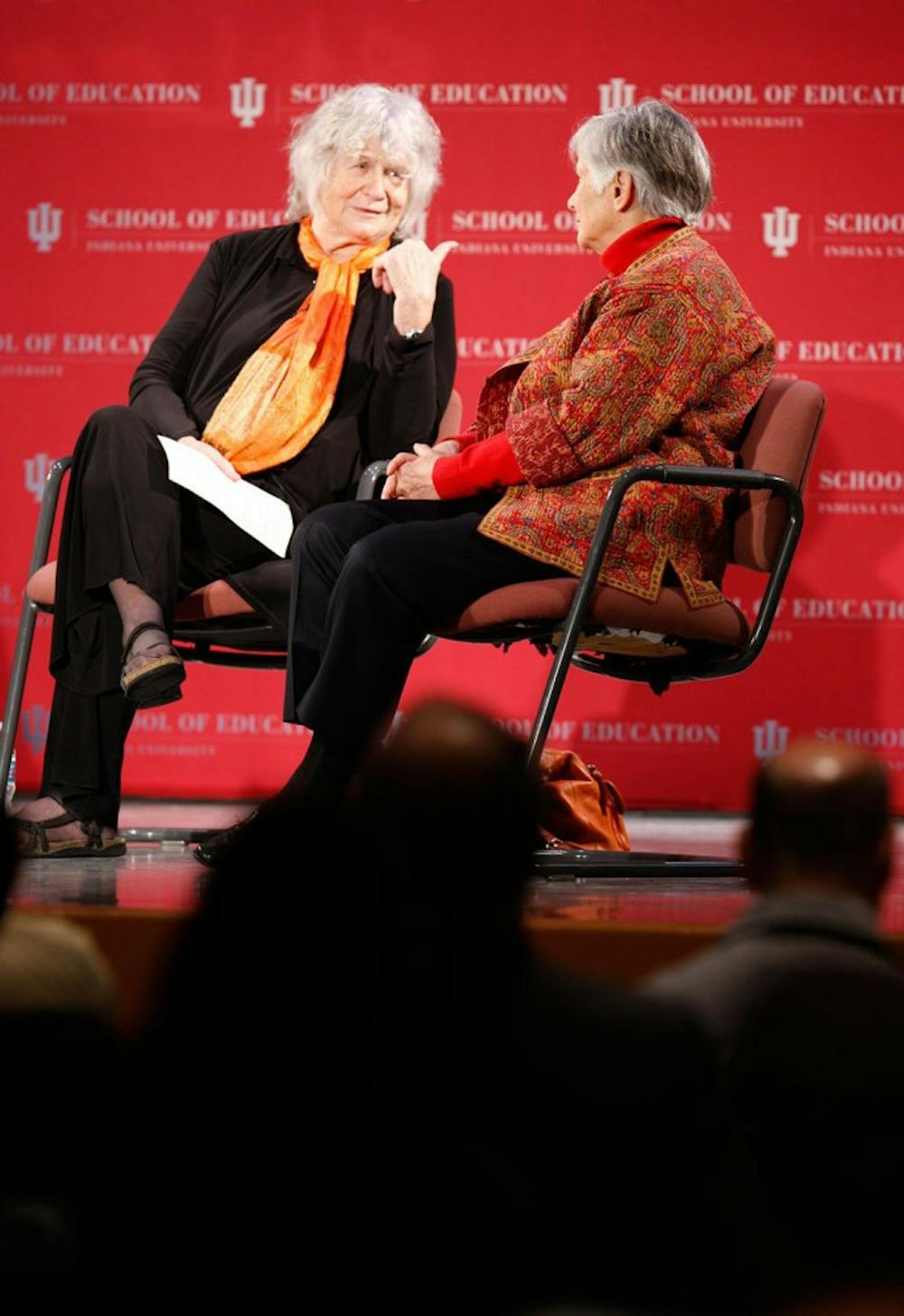To combat this, the IU School of Education plans to discuss how these groups can be treated better in schools, Executive Director and founder of the Harmony School Steve Bonchek said.
Bonchek will speak on a panel with other educators and legal professionals at ?6 p.m. Wednesday in the IU Auditorium lobby.
They plan to explore democracy and equity in education and its legal ?implications.
The School of Education will launch the new Harmony-Meier Institute for Democracy and Equity with the panel discussion.
The event serves as the formal beginning of the Harmony-Meier Institute, which is a collaboration between the School of Education, the Harmony Education Center in Bloomington and the Lilly Library, located on IU’s campus.
The institute is meant to help instill the values of democracy and equity in the School of Education, according to a University ?press release.
Bonchek said the institute hopes to provide a network for Indiana educators to have a conversation about these issues so they don’t feel isolated.
“We hope to start more communication with teachers in schools of Indiana,” he said. “We want to open their thinking that schools can be structured in different ways.”
The institute is named for Deborah Meier and the Harmony Education Center, according to the press release.
The education center started as the Harmony School in 1974 and now includes Rhino’s Youth Media Center, All-Ages Club and the headquarters of the National School Reform Faculty development initiative.
The Harmony Education Center is dedicated to teaching young people how to contribute to a democratic society, according to the press release.
Meier is a writer, advocate and educator.
She is also one of the most acclaimed school reform movement leaders in the country, according to the press release.
She also donated papers to the Lilly Library to establish the Deborah Meier Archive in 2009.
This collection provides her history of more than 50 years in progressive ?education.
The archive is available to students at the Lilly Library and also online.
The new institute hopes to be able to attract more professionals to donate their papers to the library to expand the archive of progressive education, ?Bonchek said.
Meier will participate in the panel discussion along with Roberta Kaplan, who was the lead attorney in the Supreme Court case United States v. Windsor, which ruled the 1996 Defense of Marriage Act ?unconstitutional.
Other panelists include IU Maurer School of Law professor Kevin Brown, who teaches courses on law and education as well as race and American society.
Kaplan and Brown will provide insight into race and LGBT issues in schools and how these groups are affected by the education system.
“We’re touching on two really important groups that traditionally have been marginalized in schools,” ?Bonchek said.
James Damico, director of the School of Education’s Inspire Living-Learning Center and an associate professor of literacy, culture and language education, will moderate the ?discussion.
The Inspire LLC is heavily involved with this event and has worked to bring these panelists together to discuss these issues.
The LLC is a group of education students who live together at Rose Residence Hall and explore what it means to be a teacher in today’s society.
They participate in and create events and discussions that help students explore modern issues in ?education.
The panel discussion will allow teachers, parents and future educators to figure out new ways to help marginalized groups feel more ownership of their educational experience, ?Bonchek said.
The discussion is free and open to the public. Bonchek hopes both education and non-education students attend.
Many students will become parents of future Indiana students and will be able to learn about these issues at the discussion, he said.
“We want to get more public conversation going about how schools can help these marginalized groups,” he said. “We’re trying to share this perspective with everyone. You don’t have to be a teacher to be interested in progressive education.”






